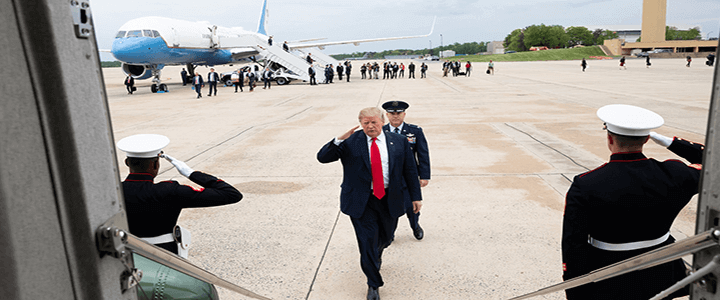On Monday morning, President Donald Trump will sit down with Russian President Vladimir Putin. Ever the contrarian, Trump enters the summit with no set agenda. This could prove to be a mistake. But his own Department of Justice have given him a ready-made opening gambit—should he decide to pursue it.
GRU Indictments
Friday afternoon, the Justice Department announced that Robert Mueller, the special prosecutor investigating the Russian interference in the 2016 presidential election, had secured grand jury indictments against 12 officers who work for the Russian Main Intelligence Directorate, known by its Russian initials GRU. The GRU is a military intelligence organization whose duties are comparable to the Defense Intelligence Agency, National Security Agency, National Reconnaissance Office, and National Geospatial-Intelligence Agency.
In response to revelations about election interference, the Obama Administration sanctioned the GRU along with the FSB (Russia’s internal security organization), three organizations that aided the GRU’s actions, and four senior GRU officials in late December 2016. Friday’s indictment went further, directly accusing the 12 individuals of hacking servers at the Democratic National Committee and Democratic Congressional Campaign Committee, and hacking email accounts of several officials with Hillary Clinton’s presidential campaign.
The indictment alleges that the online persona “Guccifer 2.0,” who had claimed to be a Romanian hacker, was in fact the GRU’s invention. It also states bluntly that “The object of the conspiracy was to hack into computers belonging to U.S. persons and entities involved in the 2016 U.S. presidential election, steal documents from those computers, and stage releases of the stolen documents to interfere with the 2016 U.S. presidential election.”
Trump must confront Putin
Trump has acknowledged the Russians were behind the 2016 hacks—weakly—while vehemently denying that there was any collusion between his campaign and the Russian government to undermine Clinton’s campaign. But the majority of Americans do believe Russia was behind the hacks, although I cannot find any polling that directly asks people if they believe Trump colluded with Russia. But we can extrapolate a few things.
A Monmouth University poll conducted at the end of April found that 54 percent of the respondents believe the Mueller investigation should continue. That number reflects a steady decline in support for the investigation. And when asked directly if Trump should be impeached, 39 percent said yes, 56 percent said no, and 5 percent didn’t know. To me that says that roughly four in ten Americans think that the Trump campaign engaged in at least some form of collusion in the Russian hacking. That’s not an insignificant number.
If Trump truly wants to strengthen his position domestically, which would only enhance his ability to pursue his foreign and domestic agendas, he should confront Putin directly on the hacking issue. This shouldn’t be the Obamaesque “cut it out,” but a forceful, face-to-face confrontation where the president expresses his disgust. Because even if one were able to prove that Russia’s actions swayed votes (a highly contentious suggestion), it is clear that by casting a shadow over the election, Russia’s actions weakened Trump’s presidency.
This isn’t a “getting to know you” meeting like the Singapore summit with Kim Jong-un last month; this is, or ought to be, a serious meeting between the heads of the world’s two leading military powers. On the one hand, the U.S. isn’t an innocent actor. We worked to destabilize the Soviet Union for most of its existence, and likely worked to prop-up the out-of-his-depth Boris Yeltsin, and undermine Putin as well. But Russia’s actions in 2016 were so blatant, not to say effective (at sowing discord, not affecting the election’s outcome), that Trump needs to confront it.
Anything less will only further undermine his presidency. And unlike the Russian meddling, this time it will be all of his own doing.



